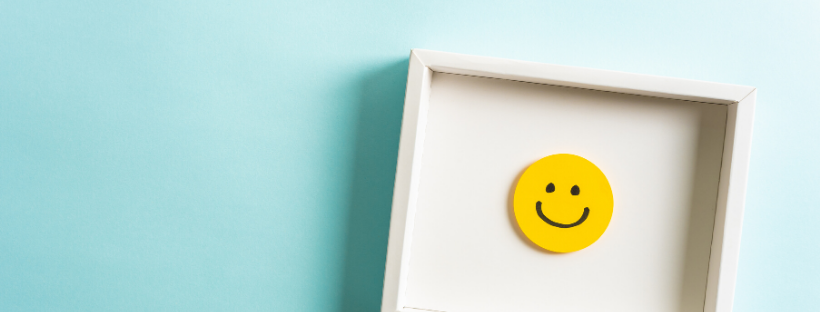5 wellbeing tips for doctors during the Covid-19 pandemic
When it comes to doctor wellbeing, we've got your back!

Whatever your situation – whether you’re working on the front line, in a non-clinical capacity, or have followed your heart into another career path – as a doctor you are bound to have a whole mixture of feelings about the Covid-19 pandemic. Panic, guilt, helplessness are a few examples, and can be completely normal. But, it can be difficult to see the wood for the trees, so maintaining your own health and wellbeing it is vital.
Everybody is an individual; some strategies will work for some and not for others. So, here is a list of a few different strategies to try in order to optimise your own wellbeing during this difficult time.
Due to the current situation, some doctors simply won’t have time to read this, let alone engage with the suggestions at the moment. However, even if you come to this later on these tips will still be relevant for your on-going wellbeing.
5 wellbeing tips for doctors during the Covid-19 pandemic
Don’t spend too much time watching the news or checking social media for news updates.

Although keeping informed is helpful and necessary, and we can all feel better when we know the facts; continuously checking for updates can be counter-productive. This behaviour, although completely understandable, can leave you feeling drained, out of control and liable to continue in a negative spiral towards further checking, worrying and exhaustion. Instead, do whatever it is you liked to do before this pandemic occurred, as long as you keep the advice for appropriate self-isolation and social distancing. For example, if you love to dance, there are some great dance workouts online. If you meditate, or would like to try, there is no better time. There are YouTube channels that provide daily livestreaming and recordings of meditation and yoga sessions that you can do in your home. Listen to music, read a book about something completely different, or do an online pub quiz. The list is endless, but try to tune back in to who you normally are, and what you normally enjoy. It may be difficult at first, but you will feel better when you recover these important aspects of your own individual identity.
Don’t do everything online
If you are working from home, or you immediately turn to your devices once you get home, gradually introduce some offline time. Being online can be great for keeping us connected with one another, but this can be at the expense of being connected with yourself. Returning to pen and paper can reconnect you with a sense of calm and can create more mental space to realise what’s important to you. You could write a diary, write short stories, write lists of word associations to a particular topic like Springtime…ultimately it’s up to you, but it’s invaluable for breaking what can be a continuous stream of digital input in which you can easily end up losing yourself.
Do some kind of physical exercise every day
It doesn’t have to be anything intense; it could be a walk, jog, stretch out session or anything which engages your body. Gentle exercise can be very helpful when your mind and body are stressed. You will give your mind a break, and open up another part of it by concentrating on your body. Don’t berate yourself if you don’t manage to get exercise in; do take each day as a new start in this regard. You don’t have to aim to get super fit – this is much more about wellbeing and balance.
Speak to someone you trust
If you are struggling with difficult feelings and thoughts and you need to speak with someone, do turn to someone trusted. Sometimes, just talking through a worrying situation helps you to think more clearly (the so-called ‘teddy bear principle’). This is the time to surround yourself, if only virtually, by people who are helpful to you. There are some things that are very doctor-specific and which you would only want to talk with fellow doctors about but don’t forget that you are only human and you share emotions with the rest of the population. Speaking with other people can help you to contextualise your feelings if you are struggling with them alone. Colleagues can be very helpful, but you may want to speak to someone outside of your immediate work circle. For example, the BMA has support services for doctors. Furthermore, in particular to the COVID-19 pandemic, the NHS has launched a wellbeing support line for staff. Don’t forget to contact your medical indemnity organisation for advice if you have a worry about a particular medico-legal situation.

Do control what you can control
Don’t forget that you still have autonomy in decision- making about your own life within the frame of the current crisis. Do use the time you have outside of work to rest and recover, and don’t unnecessarily check your email. If you over-check your email, you won’t be as efficient when you do work because you won’t have given your mind time to recover. Create a separation from work and personal life even if you are living and working in the same place. For example, create different working and resting spaces within your home, or take time at the end of the working day to transition into a restful space by taking some gentle exercise. Reconnect with nature in whichever way you can. The situation is uncertain and rapidly changing – you can’t do anything about that – but you can take steps to take care of yourself. Importantly, don’t berate yourself for all the things you aren’t able to do; this just takes your focus off what you can do.
For more on wellbeing during the pandemic, check out our Wellbeing FAQs and support for doctors.
Laura Allison
Latest posts by Laura Allison (see all)
- A Beginners’ Guide to Machine Learning in Healthcare - 18th November 2020
- 5 ways to connect with nature for wellbeing - 30th May 2020
- 5 wellbeing tips for doctors during the Covid-19 pandemic - 21st April 2020
